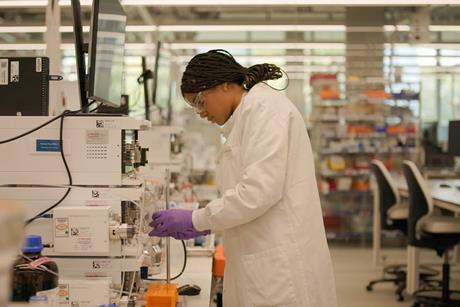Options at 14
Choosing your options
Around the age of 14 you will have to make some important decisions about your future studies. If you like chemistry and are considering taking it further, the best advice is to do as much science as you can.
What do I need to do?
- Find out what science courses are available at your school
- Ask your teachers what the various courses involve
- If you are interested in a career using chemistry, and/or would like to study the subject at a higher level, find out the entry requirements for those higher level courses. You can download a list of typical A-level requirements for science degrees in the downloads section to the right. You are likely to need good grades, with maths also being an important subject.
- Even if you decide not to continue with science in future, it is still useful for a wide range of careers.
- Take the time to consider your options and how they could impact your future
- Speak with real scientists in real time using I’m a Scientist
Where can I get help with my choices?
Your teachers or careers adviser can tell you more about the science or chemistry courses available at your school. If you’re interested in work-based qualifications or an apprenticeship, the entry requirements vary.
Find out whether there are any special school careers events that will give you information about careers in chemistry.
After-school clubs, local events, online games (check out the resources on our education website) are fun ways to explore your interest further.
For information on which subjects you will need for any careers that interest you, see:
- National Careers Service (England)
- Careers Wales
- Skills Development Scotland
- Careers Service Northern Ireland
- Careers Portal – Republic of Ireland
Remember that if you want to continue with chemistry, keep your options open by taking as much science as possible. Take time to consider all your options – they can impact on the choices available to you in the future.
What science courses are available?
There have been extensive reforms to pre-16 qualifications in England, Wales and Northern Ireland and there are now differences between the UK nations and in the Republic of Ireland as summarised below.
| Nation | Name of qualification |
|
England |
Combined* science GCSE (chemistry, biology, physics together). Students awarded two GCSEs OR Single science** GCSE. Biology, chemistry and physics are studied as separate subjects. A separate grade is given for each subject studied. * Often called double award ** Often called triple science |
|
Wales |
Double award science GCSE (chemistry, biology, physics together). Students awarded two GCSEs. OR Chemistry, physics, biology GCSE as separate subjects. A separate grade is given for each subject studied. OR Applied science GCSE single award (chemistry, biology, physics together, students awarded 1 GCSE) or Applied science GCSE double award (chemistry, biology, physics together, students awarded 2 GCSEs). |
|
Northern Ireland |
Double award science GCSE (chemistry, biology, physics together) 2 GCSEs are awarded. OR Single award science GCSE (chemistry, biology, physics together). 1 GCSE is awarded. OR Chemistry, physics, biology GCSE as separate subjects. A separate grade is given for each subject studied. |
|
Scotland |
Chemistry can be taken at National 3, 4 and 5 as a separate subject. Science (encompassing chemistry, physics and biology) is available at National 3 and 4. |
|
Republic of Ireland |
Science is taken as part of the Junior Cycle, although not compulsory it is taken up by over 95% of students. |
Some schools offer international qualifications called IGCSEs, which are mainly exam based and often used to prepare students for the International Baccalaureate.
DOWNLOADS
APPRENTICESHIPS
Want to learn and earn?
Work-based training in chemistry is an option. Explore apprentice routes into chemistry
GOING TO UNIVERSITY
Thinking about university?
There are plenty of options for getting into uni, even if you don’t get the results you’re after.









